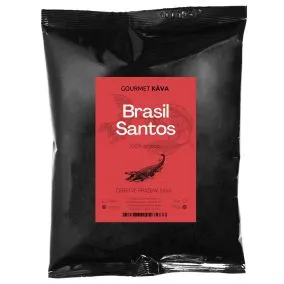Do coffee drinkers show better work performance? Does coffee make your work go better?
In pure theory, answering yes to both questions would be enough. But with an article like this, you wouldn't even have time to drink an espresso, so let's be a little more specific.
What do we know about the effect of coffee consumption on work efficiency?
Higher performance, lower error rates
According to studies, employees who drink coffee during working hours are significantly more focused and do not experience slower reaction times or significant cognitive decline, which translates into better work performance as well as the fact that they can be counted on to be at less risk of work-related injuries.
Problem solving assistant
The link between caffeine and concentration levels is well known and welcome in many professions. But some researchers have also investigated the effect of caffeine on problem-solving ability. If you've previously held the view that with a cup of coffee in hand, virtually every problem has a solution, you're not far from the truth. Caffeine really does help you in this regard as well.
What about creativity
It seems to be virtually omnipotent, but testing caffeine's effect on creative thinking hasn't yielded such promising results. Creativity is, of course, a very individual thing, and it is very difficult to judge whether you can boost it by drinking coffee. However, the opinion of most experts is that you cannot count on caffeine to promote creative thinking.
The dose of coffee matters
A suitable dose of caffeine is associated with stimulating effects,delaying the onset of fatigue, reducing symptoms of exhaustion, improving concentration and decision-making abilities. In relation to occupational performance, this usually means that a person who drinks coffee is more likely to perform better at work than one who does not have caffeine flowing through their veins during working hours.
But there is one major variable at play, and that is the dose of caffeine. Work performance does not grow in direct proportion to the number of cups of coffee you drink. In fact, after a certain dose, over-stimulation (caffeine overdose) occurs, which in turn impairs performance, concentration and other desirable effects.
It is usually very difficult to determine where the desired stimulation ends and the overdose begins. Especially since every body processes caffeine a little differently. The basis is coded genetically. People can thus be divided into two basic groups, one of which metabolizes caffeine quickly while the other slowly. The two or three coffees per shift that a member of the first group can handle at a leisurely pace can be highly problematic for a person with a slow caffeine metabolism.
You will find it ideal to listen to your body's reactions and act on them. If you have a good coffee at 5pm and are still having trouble falling asleep at 10pm, head to the coffee machine at an earlier hour next time.
But it certainly makes sense that good coffee should be your companion at work.
Lavado Coffee from the mountains in southeastern Cuba will surprise you with almost zero acidity and a strong flavor of bitter chocolate and caramel.
Lavado Coffee from the mountains in southeastern Cuba will surprise you with almost zero acidity and a strong flavor of bitter chocolate and caramel.
Guatemalan coffee Trés Maria stands out for its perfect balance and pleasant sweetness complemented by the taste of ripe tropical fruit.
Guatemalan coffee Trés Maria stands out for its perfect balance and pleasant sweetness complemented by the taste of ripe tropical fruit.
Extremely low acidity and chocolate taste are combined in Brazil Fazenda Rainforest coffee, by purchasing which you support the idea of an ecological and socially friendly way of growing coffee .
Extremely low acidity and chocolate taste are combined in Brazil Fazenda Rainforest coffee, by purchasing which you support the idea of an ecological and socially friendly way of growing coffee .
Ethiopia gave coffee its name after the Ethiopian province of Kaffa, so it is no surprise that one of the best coffees in the world is grown there.
Ethiopia gave coffee its name after the Ethiopian province of Kaffa, so it is no surprise that one of the best coffees in the world is grown there.
A unique blend of 5 types of Arabica from Central and South America, supplemented with quality robusta , for an espresso full of flavor, strength and quality crema.
A unique blend of 5 types of Arabica from Central and South America, supplemented with quality robusta , for an espresso full of flavor, strength and quality crema.
Cuba Lavado, whole bean Arabica coffee
Guatemala Trés Maria, whole bean arabica coffee
Brazil Fazenda Rainforest, whole bean arabica...
Ethiopia Sidamo, arabica coffee beans
Espresso blend Pura Vida, whole bean coffee
Resources:
https://pubmed.ncbi.nlm.nih.gov/16106485/
https://www.sciencedirect.com/science/article/abs/pii/S1053810019303435?via%3Dihub


































































































